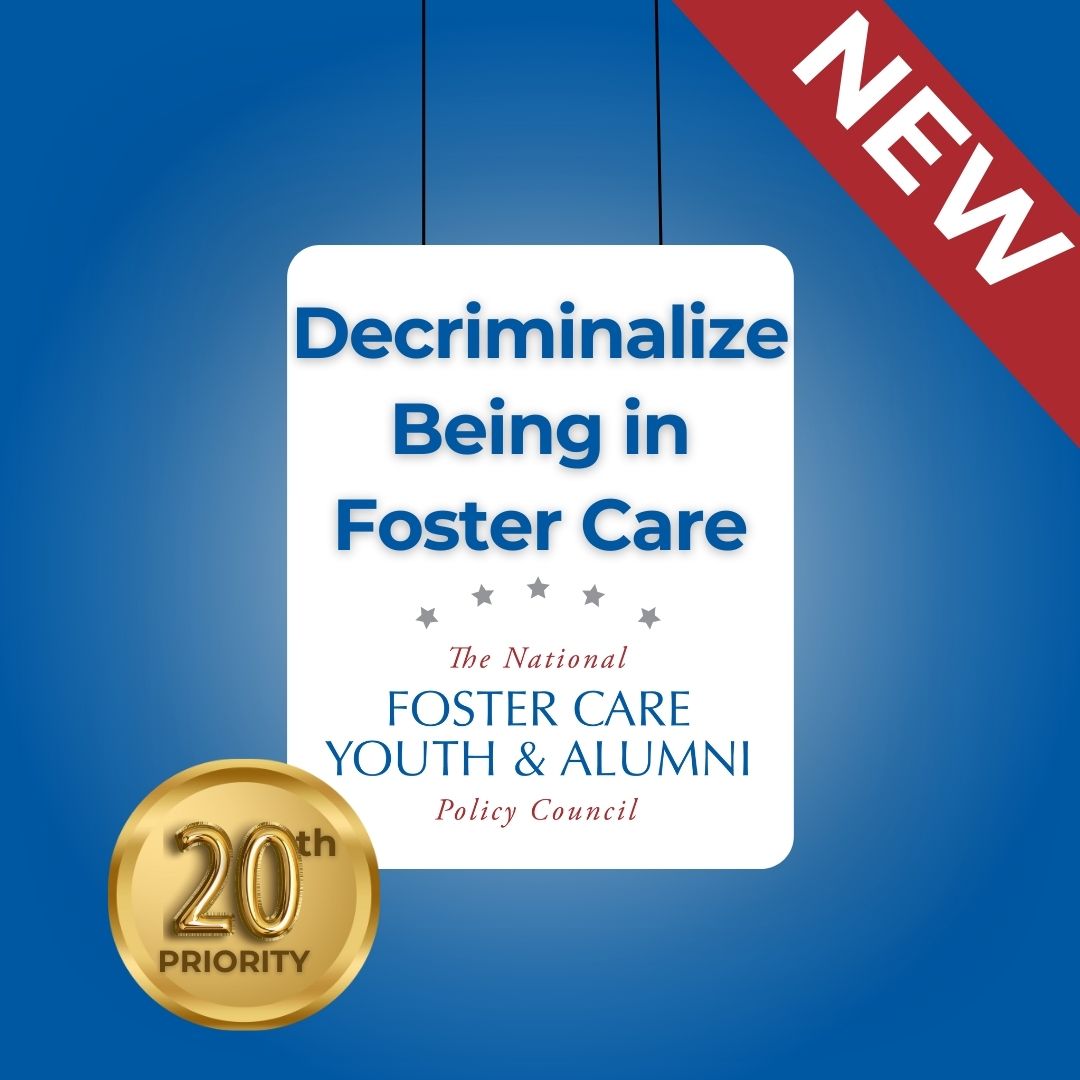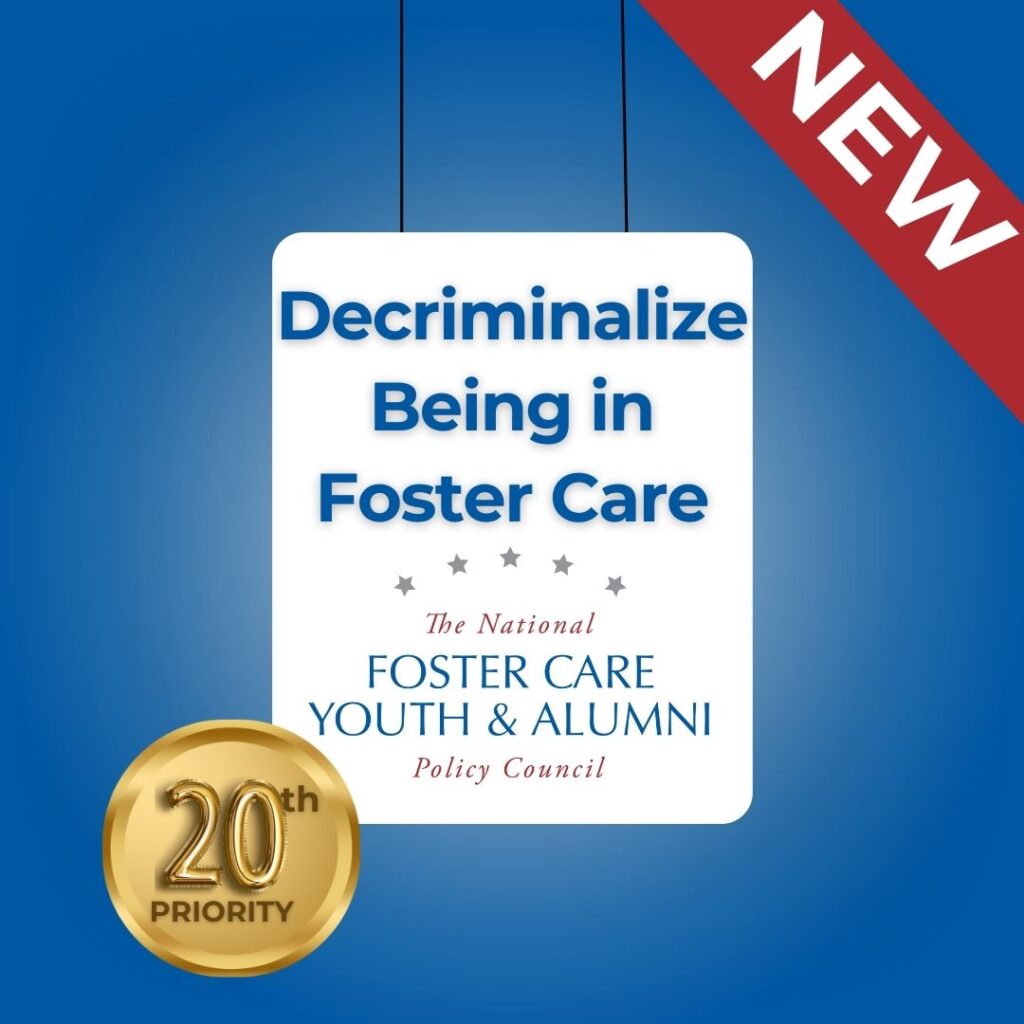
01 Oct Council Releases 20th Priority: Decriminalize Being in Foster Care!

“From the moment a child is removed from their home, they often encounter their first interaction with law enforcement, setting a troubling precedent. As foster youth navigate these institutions, they encounter individuals who believe punitive consequences are an acceptable response to normal childhood and trauma-induced behaviors.
This culture erodes the cycle of attachment and severs connection and self-development. The foster care to prison pipeline is a prime example of how institutions can sustain cycles of injustice and disadvantage, disproportionately affecting vulnerable communities.”
— Bianca Bennett, Council Member from New York
The National Foster Care Youth & Alumni Policy Council is pleased to release its 20th priority statement: Decriminalize Being in Foster Care!
Foster youth are more likely to interact with law enforcement and enter the juvenile justice system than their peers, as well as be affected by these interactions for a lifetime. One fifth of the nation’s prison population is former foster youth. This priority highlights the ways in which these youth are over-criminalized and how they are disproportionately represented in the juvenile justice system. We propose a number of solutions to address these issues, including training for caregivers on trauma-responsive approaches, the creation of a response system for youth in crisis, the development of specialized mental health programs, keeping children in their homes and communities whenever possible, and providing them with safe and stable housing.
The priority making process begins with Council Member discussion, consultation with subject matter experts, and is followed by polling of fellow current and former foster youth on the topic, along with a creation of a priority document that reflects feedback from each step.
In this priority, Council members forward the following statements:
Priority 1: Those charged with our safety must remember that we are children and teenagers.
Priority 2: Our caregivers need to understand our personal trauma and how that influences our behaviors. We aren’t bad children or teens. We lived through bad things.
Priority 3: We ask policymakers and Child Welfare leaders to disrupt the foster care-to-prison pipeline with intention and urgency.
You can read the full priority HERE >>>.
For more information, or to be included on the distribution of future Council work, please join our mailing list!
Background on the Council
The Council was created in 2012, at the request of then ACF leader, George Sheldon. The Council has issued 20 priority statements to inform and educate federal stakeholders and the field on the experiences of foster youth, including the impact of policies and practices. The Council has met with ACF and Children’s Bureau leadership, key child welfare field stakeholders and Casey staff on at least an annual basis since then. The Council’s priority making process and work is reflected on nationalpolicycouncil.org.
Location
District of Columbia





No Comments